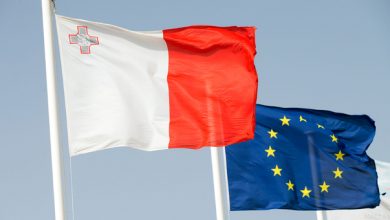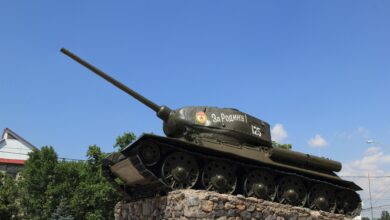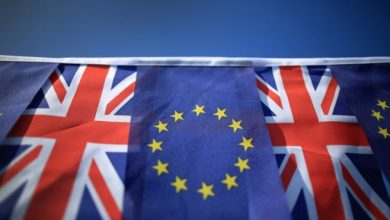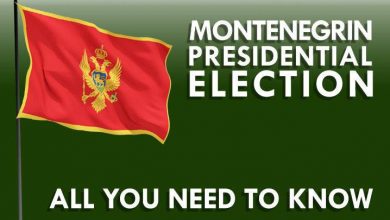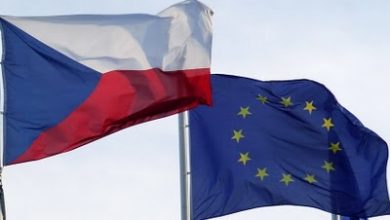President Zelensky: A New Way for Ukraine or More of the Same?
Why Zelensky’s victory in the first round of Ukrainian presidential elections is not just about populism.

Zelensky: A Shadowy Candidate
“Ukraine’s Donald Trump” and “Ukraine’s Beppe Grillo” are just some of the epithets the press uses to describe comedian Volodymyr Zelensky, the frontrunner in this Sunday’s presidential elections in Ukraine. After winning the first round on March 31st, with nearly 30% of the votes, the so-portrayed anti-establishment candidate is likely headed to become the next president of the former Soviet country. But exactly what do we know about him, and is he really as anti-establishment as his campaign makes him out to be?
Despite his constant attacks against the élite, he appears to be backed one of Ukraine’s most influential oligarchs: Ihor Kolomoyski, owner of the 1+1 TV Channel. 1+1 is responsible for airing “The Servant of the People”, the comedy series where Zelensky himself plays the role of a former history teacher who became the President of Ukraine.
As reported by The Guardian and The Wall Street Journal, Kolomoyski was involved in financing Ukrainian ultra-nationalist armed groups. Other oligarchs have also accused Kolomoyski of corruption and defrauding, filing several lawsuits. Although no court had ever condemned him, Ukraine’s well known problems with the judiciary’s corruption have led public opinion to reserve judgment on his behaviour.
The picture this paints is that of an ordinary Ukrainian oligarch whose activity is covered in dark spots cover-ups – not that different from those who Zelensky’s attacks are directed towards.
An Unusual Result
The relation between Zelensky and Kolomoyski leads to the consideration that the establishment might still be in charge of Ukrainian politics, regardless of the winner. Nonetheless. it is interesting to note the way the first round of votes went, because is has been an absolute novelty in Ukrainian history.
Normally, voting results split the country in two regions, resembling the current linguistic divide between the Russian-speaking east-south and the Ukrainian-speaking west-north. Ukrainian parties, especially the pro-Russian Party of Regions, consistently play the card of linguistic differences, leading to a marked difference in voting patterns.

In this case, though, voters uniformly favoured Zelensky, with the exception of a few oblasts in the west, where former president Petro Poroshenko won, and in the east. Bringing together the country under a single political flag is something which has been almost unheard of in Ukraine, suggesting that Ukrainians have developed some overarching concerns and have become disillusioned with the traditional political narrative.

Oligarchs and Politics: Democracy and Misgovernmence
The biggest problem of modern-day Ukraine is that a small number of people controls large parts of the economy, which is a direct consequence of the badly conducted policies of the first post-Soviet period. When the country gained independence, privatisations of large national businesses inherited from the former centralized economy were carried out, despite the fact that few would have been financially able to buy them. Those who succeeded in doing so then were mostly former party strongmen, who kept on with their political activities.
No government since then succeeded in reforming this corrupt system, where bureaucracy and scarce efficiency in governing national enterprises weigh heavily on the state’s finances. The result of this misgovernance both in politics and economics is the inability to fully exploit the incredible resources this country could rely on, especially when it comes to agriculture. The 2008 global financial crisis hit Ukraine hard, but the war struck the final blow to a veritable house of cards, both for direct military costs and for the losses of resources in occupied areas.
A Hot Winter Electoral Campaign
The war obviously remains one of the biggest issues in this year’s election, and Poroshenko and Zelensky have addressed the problem differently. Poroshenko was elected in 2014 in a war-torn country, as a war-president, to put an end to the conflict – and he failed to do so. Clearly it would be wrong to put the whole fault of this failure on him. The game is far too complex for a single man to handle, especially considering the high number of national and international players involved. Still, Ukrainians have lost their fate in him, probably also because after 2016, his focus appeared to shift towards toward strengthening its own power rather than solving the problems of the country. He also campaigned intensely against Zelensky to the point of comparing him to Putin, stating the fact that the comedian is a Russian-speaker.
His opponent, on the other side, can boast an absolutely inexistent political background, boosting his position as an impartial newcomer in the political arena of the country. He can claim a lack of involvement in the corrupted relation between the economic and political stages.This gives him the chance to promise anything. He pledged to conclude peace with Russia by offering a compromise, but not to the price of territorial cessions. Such an outcome is highly improbable, but still it’s probably the only thing a deprived nation dreams of. His campaign focuses on the future, on positivity. To promise something and to achieve it are two very different things, but so far Ukrainians seem to badly need new perspectives.
New International Prospects
The likely victory of Zelensky, when considering his stance on Ukrainian unity and the fact that he speaks Russian, tells us something really important and potentially consequential in the international arena: it seems that Ukrainians are tired of the contraposition between pro-European and pro-Russian politics and are instead exhibiting their dissent against the whole system.
If Ukrainians succeed in overcoming linguistic differences by recognizing themselves as citizens living in a democratic country which ensures its people rights regardless their cultural identity, Ukraine could become a state where the Russian culture and heritage cohabitate with democracy. A still improvable kind of democracy, considering the cumbersome role of oligarchs like Kolomoyski, but far from being as flawed as that of Russia.
What is happening in this election may result in a disturbing turn of the tide for Putin’s interests as the rescuer of Russians in neighboring countries. Ukraine is the only former Soviet country, with the exception of the Baltics, which is undergoing a real and systematic political alteration. Whether Putin would accept such a scenario is anyone’s guess.

